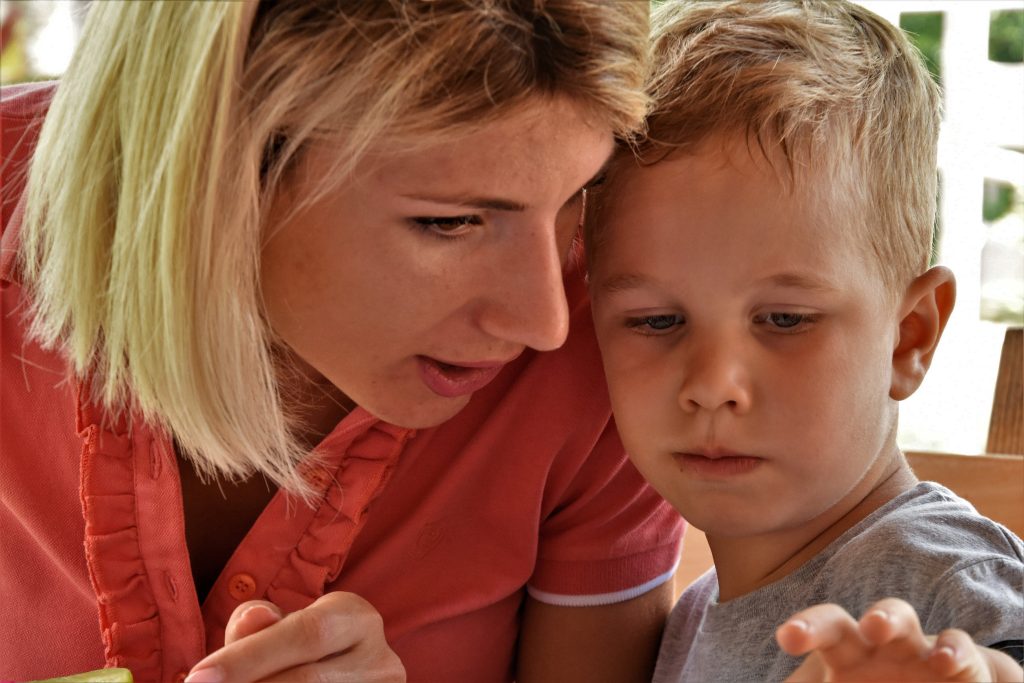
Believe it or not, your approach to discipline, communication, and even how you handle screen time might be traced back to your educational background. It’s not about how many degrees you have—it’s about how your education has shaped the way you solve problems, gather information, and make decisions. Whether you’ve earned a PhD or learned everything you know from the school of hard knocks, your educational experience plays a subtle but powerful role in how you parent. Understanding what your education says about your parenting style can help you reflect, grow, and even improve your relationship with your child. Ready to see how the classroom has followed you into the playroom? Let’s dig in.
1. High School Education: Practical and Protective
Parents whose formal education stopped at high school often bring a strong sense of practicality and real-world readiness to their parenting style. They may emphasize common sense, work ethic, and street smarts over academic achievements. This can lead to a protective style, where the focus is on providing, preventing mistakes, and ensuring safety. These parents often prioritize teaching life skills early—things like cooking, budgeting, and responsibility. When exploring what your education says about your parenting style, this group tends to value action over theory.
2. Trade or Vocational Education: Hands-On and Structured
If you attended trade school or pursued vocational training, chances are you favor structure and routine in your home. You likely believe in teaching kids the value of hard work, deadlines, and learning by doing. These parents tend to use schedules, reward systems, and concrete goals to help kids thrive. Because their own education emphasized skill-building and real-world application, they often expect the same results-driven focus from their kids. What your education says about your parenting style here is clear: practical skills and clear expectations matter.
3. Associate Degree: Balanced and Encouraging
Parents with associate degrees often bring a balanced mix of structure and emotional support into their parenting. They’ve experienced both the working world and higher education, giving them a broad perspective on what matters most. These parents may encourage academic success, but not at the expense of mental health or family time. They often promote independence while remaining highly involved, striving for a middle ground between hands-on parenting and fostering autonomy. If you’re wondering what your education says about your parenting style with an associate degree, it likely reveals a nurturing yet no-nonsense approach.
4. Bachelor’s Degree: Achievement-Oriented and Informed
Bachelor’s degree holders often take an achievement-focused approach to parenting. They may place a high value on academics, extracurricular involvement, and preparing kids for college or competitive careers. These parents are likely to research parenting strategies, follow developmental guidelines, and seek expert opinions. Structure, planning, and measurable success may play big roles in how they raise their children. What your education says about your parenting style with a bachelor’s degree often points to a research-driven, goal-oriented mindset.
5. Graduate Degree: Analytical and Intentional
Parents with master’s or doctoral degrees tend to be highly intentional and analytical when it comes to raising children. They often read extensively about parenting, child psychology, and educational theory—sometimes to the point of overthinking. These parents may lean toward democratic or gentle parenting approaches, choosing strategies that are backed by studies or endorsed by experts. At the same time, they may struggle with perfectionism or pressure to raise “exceptional” children. In terms of what your education says about your parenting style, a graduate degree suggests a thoughtful but sometimes overly complex approach to decision-making.
6. Self-Taught or Lifelong Learners: Adaptive and Resourceful
Not all education comes with a diploma, and many parents fall into the self-taught or lifelong learner category. These parents tend to be curious, adaptable, and deeply engaged in their children’s interests and emotions. They may pull wisdom from books, podcasts, blogs, and their own life experience. This style often emphasizes learning as a journey and encourages kids to question, explore, and find what works for them. When it comes to what your education says about your parenting style, this route speaks volumes about flexibility and resilience.
Education Isn’t Everything, But It Shapes a Lot
No parenting style is “right” or “wrong,” and education is only one piece of the larger puzzle that shapes how we raise our kids. Still, reflecting on what your education says about your parenting style can help you identify patterns, strengths, and even blind spots. Whether you’re encouraging your child to pursue academics or hands-on skills, the goal is the same: raising capable, confident humans. Awareness of your own influences just helps you do it more intentionally.
Have you noticed how your education has influenced the way you parent? Share your insights in the comments—we’d love to hear your perspective.
Read More:
8 Parenting Styles That Are Sparking Heated Debates
Is Your Parenting Style Shaped by Your Own Childhood?
Catherine is a tech-savvy writer who has focused on the personal finance space for more than eight years. She has a Bachelor’s in Information Technology and enjoys showcasing how tech can simplify everyday personal finance tasks like budgeting, spending tracking, and planning for the future. Additionally, she’s explored the ins and outs of the world of side hustles and loves to share what she’s learned along the way. When she’s not working, you can find her relaxing at home in the Pacific Northwest with her two cats or enjoying a cup of coffee at her neighborhood cafe.








